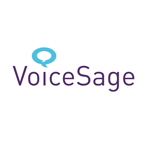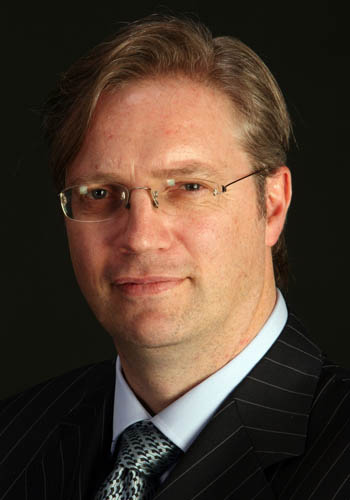Paul Sweeney from VoiceSage on marketing a technology service
 Social Media Portal (SMP): What is your name and what do you do there at VoiceSage?Paul Sweeney (PS):
Social Media Portal (SMP): What is your name and what do you do there at VoiceSage?Paul Sweeney (PS): I am Paul Sweeney, Chief Product Officer (CPO) at
VoiceSage. The role consists of developing the product roadmap so that it always addresses the current and evolving future needs of our customers. It involves high quality, intense conversations with users, buyers, sales people, engineers and management with the aim of coming to a common understanding about what we are trying to achieve.
SMP: Briefly, tell us about VoiceSage, what is it and what does company do?PS: We enable enterprise customers to contact their customers using messaging technologies over multiple channels such as SMS, voice and email in order to get a job done such as confirm an appointment or pay a bill. It's really a form of automation that companies use initially to reduce inbound call volumes by proactively contacting customers ?and then as they get better at it, as a way of delivering great customer experiences.
SMP: Who are your target audience and why?PS: Our target audience is typically a customer service manager or director who is trying to get the maximum value from limited resources. They work for large-scale enterprises in the retail, financial services or the utilities sectors. They care about the problem of how to communicate personally at scale while also meeting heavy compliance and security concerns
 SMP: How many people work at VoiceSage and how is the company funded?PS
SMP: How many people work at VoiceSage and how is the company funded?PS: Over 30 people work at VoiceSage between the UK and Irish offices. We are a profitable and privately funded company.
SMP: What are the challenges that you?ve encountered and how are you overcoming them in what you have been doing so far at VoiceSage?
PS: The major one is the shift to digital that has been enabled by the smartphone. While it is clear that people still value the ability to be able to call a company and be connected efficiently to a knowledgeable and friendly agent, they would actually prefer not to have to call a company at all. We help them still work with a supplier but not have to make that physical call. Brands need to move from thinking about delivering great interactions to enabling great conversations. All your channels need to "know each another", and all of your data has to "know each other". We've learned that for really memorable experiences using messaging technologies you have to do everything right, not just bits and pieces of the job right.
SMP: What are the high moments of what you have been doing so far?
PS: The high moments I've experienced are when a customer shares their view of the problems they face and comes up with an idea such as "wouldn't it be great if...". While not all these ideas are viable, they always give you insights into what the real concerns of your customers are. When you think about it, it?s an absolute privilege to be asked into a conversation with your customers and users. From an internal perspective, I think there is a moment when all the planning, talking, and work practices "click together" and somehow it feels coherent, purposeful and powerful. I've experienced that.
SMP: What do you see as your biggest challenges and opportunities for your sector and the competition that you have?
PS: The challenge is that we all operate on "Internet time" but often
within the constraints of "enterprise processes" built for an earlier
era. While companies spend many, many months proving and testing and
deploying a promising idea, the market has moved on, and maybe even the
very solution they are deploying has become obsolescent in some
fundamental way.
The requirement is to become more lean,
flexible and digital at their very core. This will require super-capable
management in Digital Transformation initiatives. From a messaging
perspective, if everything "lands on our mobile phone", do we really
care if it's voice, SMS, In-App or any other mode? I'd like to point
your readers to some interesting analysis around these developments:
Benedict Evans outlines the implications here;
while
Paul Adams of Intercom shows how that will turn up in actual
design here;
finally,
Kate Leggett of Forrester Research indicates how this shows up
in the traditional contact centre world.
SMP: The customer experience is vital to business success, how does VoiceSage embrace social media?PS:
I have developed my personal social media brand on
@PaulSweeney and deliberately steer a
line between the professional and the personal. People don't want to
follow a dry corporate voice. They want to know a little something about
you. I've found it very useful in being pointed to interesting
research, and to other influencers in the space. As a company, we
committed to a social presence and we have developed a lot of content to
share our expertise and build our brand ? we participate in discussions
across LinkedIn in particular.
SMP: What are your top five predictions for customer service success for the next 12 to 18-months and why?PS replies with:- It's about the mobile, stupid. If you can't figure out how the mobile is going to change your customer journey, you're kinda dead already.
- It's about the experience. Ease of use, localisation data, even personalisation, are all about creating and delivering some kind of experience.
- It's about the data that drives experiences. Systems and processes that operate in silos just have to be addressed. Companies will struggle desperately with this, and IT Directors capable of delivering these projects will become gold dust.
- It's about simple solutions and simple UI for agents. Simplification is a way of managing complexity: with more and more solution sets available, someone has to manage for the agent experience as well. We've all seen those desktops with multiple screens, and multiple applications, simultaneously open, in order to do deliver the "one answer". I think we?ll see a backlash from that now.
- It's about automating the small things ? whether that's capturing and responding to social media, or automating a payment routine, the sheer scale of interactions means that automation has to be front and centre in any customer service strategy.
SMP: What are your top overall five customer service tips and why?
PS replies with:- Connect people: look for opportunities to connect the customer to other people in a way that creates meaning. Look for simple data to add meaning and context. Hailo?s app does a great job of this by showing you the picture of the cab driver, but perhaps it could be better if it showed you friends of yours that had this driver, or even just reminded you that you have met this driver before!
- Details matter when you are delivering experiences: One of my favourite examples is an airport mobile app (developed by the airport) that tells you when to leave for your gate, based on exactly where you are now, and the current length of the security queue. The customer just experiences the comfort of knowing that their journey is under control.
- Get "stupid simple". You might think your information and "objects" are easy to understand ? but why all these inbound calls then? Well, it's because customers can't understand what it means to them. I love this original article from 2012, for example, about airline ticket redesign and then how this was in turn revolutionised by the mobile app experience.
- Use social to amplify good experiences. There is no doubt that senior management want to stop brand damaging conversations but far less attention is being given to help share good brand experiences from a customer service perspective. Take time out to plan for this, it won't happen on its own.
- Connect your customers? social ID with other identity information so that you can connect the dots between what people are saying about you, especially if they are actual customers of yours, or know customers of yours. This can be the foundation layer to much more "complicated" digital strategies.
SMP: Is there anything else we should know, or is there anything that you?d like to share?PS: Indeed there is. From my experience there is still ample upside in doing the simple things well. You know when customers need to check their balance, you know when they are due to receive bills, and many other ordinary every day activities. Proactively contacting customers with not just information, but with choices, is great way to create simply useful experiences.
Telling me my account is about to go above my overdraft limit, for example, without giving me the option to do something about it within the message, isn't ideal: enabling me to extend the overdraft, make a transfer, or speak to an agent, would be useful.
Remember, it's not the fact that the overdraft is breached that is important to the customer, its the fact that their direct debit for a mortgage or insurance product might now bounce, and that it could put their overall credit rating at risk. Look for the deeper implications in your customer interactions in order to make them meaningful to the customers ? that's how you begin to matter to them.
SMP: Best way to contact you and VoiceSage?PS: I can be contacted at
@paulSweeney and the best way to contact VoiceSage is
@voicesage or our
online form.
Now some questions for fun
SMP: What did you have for breakfast / lunch?
PS: I always have porridge in the morning as it's a slow burn food and keeps the energy levels consistent.
At lunch I try to have soup and brown bread, and stay away as much as possible from sandwiches...
SMP: What?s the last good thing that you did for someone?PS: Helped someone work from home rather than get on a plane to go to a meeting they really didn't need to be physically at! Saved that person a whole days travel.
SMP: If you weren?t working at VoiceSage what would you be doing?
PS: Another start up. Probably. Though I might be tempted into something that had potential societal benefit.
SMP: When / where did you go on your last holiday and why?PS: I went on holidays to Kilkee in Co. Clare, Ireland for a number of reasons, but not least of which was to keep money in the country and support local business. Turned out to be one of the best holidays in the year, though the weather was shall we say "challenging".
SMP: What?s the first thing you do when you get into the office of a morning?PS: I really shouldn't admit this, but it's check Twitter. Then I will check the headlines in the online papers, then email. I won't answer email first thing, as I try to use the first few hours to get one good thing done.
SMP: If you had a superpower what would it be and why?PS: Oh neat question! I'd have to say intelligence, as I keep on bumping into my own limitations!